Alternatives to Wooden Decking in Boston, Massachusetts
Reading Time: 8 minutesWhile unique in many aspects, traditional wood decking often leads homeowners to explore various decking alternatives. It has a distinct pattern and color palette unmatched by synthetic materials. Yet, many seek materials that still provide natural wood’s pleasant feel and exceptional durability without its maintenance demands.
However, its organic origin is a source of attractive features and weakening points, such as vulnerability to moisture and insects. If you don’t have enough time, money, or skills to invest in maintaining the deck’s appearance, you should consider alternatives to wooden decking. Due to the continuous technological progress, you can choose from multiple options.
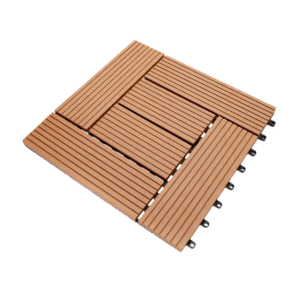
Bamboo Decking
Durable and eco-friendly, bamboo decking offers a unique, natural aesthetic with excellent strength.
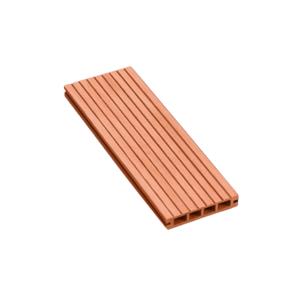
Composite Decking
Combining wood fibers and recycled plastics, composite decking provides a low-maintenance, weather-resistant alternative.
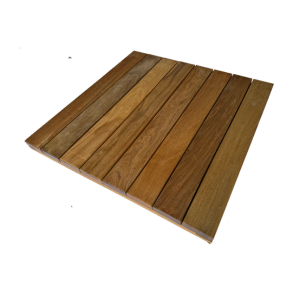
PVC Decking
Made entirely from synthetic materials, PVC decking is highly durable, resistant to moisture, and requires minimal upkeep.
Decking Options with Boards
If you are searching for alternative composite decking materials that at least resemble natural wood in style and pattern, you should explore different types of deck boards. Not all of them are eco-friendly or look like authentic timber. Still, each of them will decrease your expenses on maintenance and aftercare.
Alternatives to Wooden Decking: Bamboo Decking
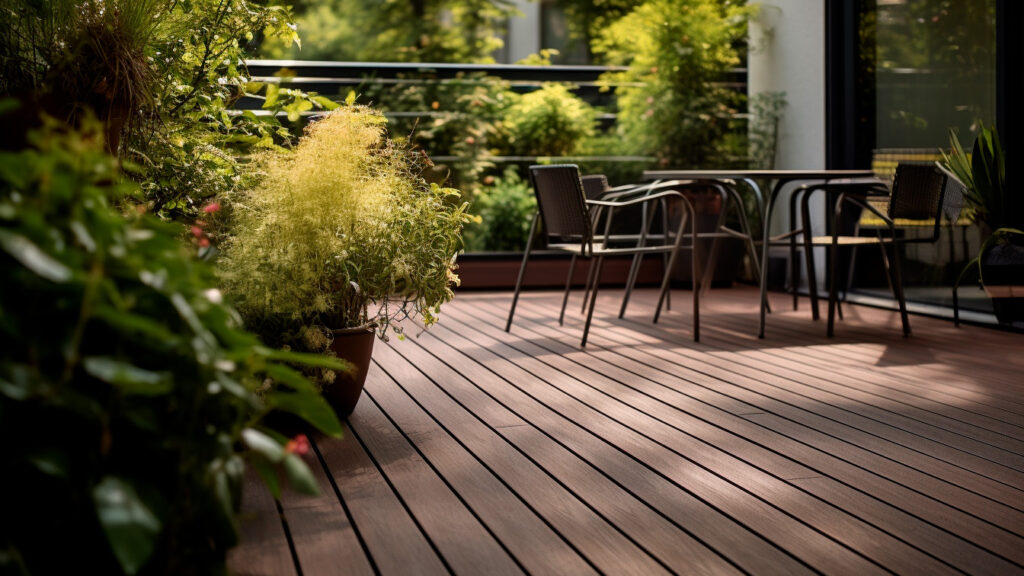
Definition & Brief Description
Although bamboo is technically a grass, decking boards made of this material are the closest to lumber in their defining traits. There are woven and non-woven boards. The first one shows more strength, while the latter will cost you less.
Its longevity is approximately equal to the lifespan of hardwood, which is 15 years. Yet, it is more resilient, lightweight incredibly durable, and resistant to moisture.
Price
Timber prices tend to display significant fluctuations over recent years. However, in most cases, you will spend more on bamboo decking than on real wood one, and premium wood can be expensive. Therefore, if you are on a budget, review other options.
Lifespan
When taken care of properly, this material can withstand deteriorating factors, such as moisture, UV light, mold, or insects, for a long time. Still, stain and seal it regularly if you want it to last longer than 10–15 years and preserve structural integrity and its eye-pleasing appearance.
Advantages & Shortcomings
| Perks | Inconveniences |
| It displays enhanced resilience. | It still requires regular staining and sealing. |
| It is 100% recyclable, natural, and lightweight. | Its price is slightly higher. |
Alternatives to Wooden Decking: Composite Decking
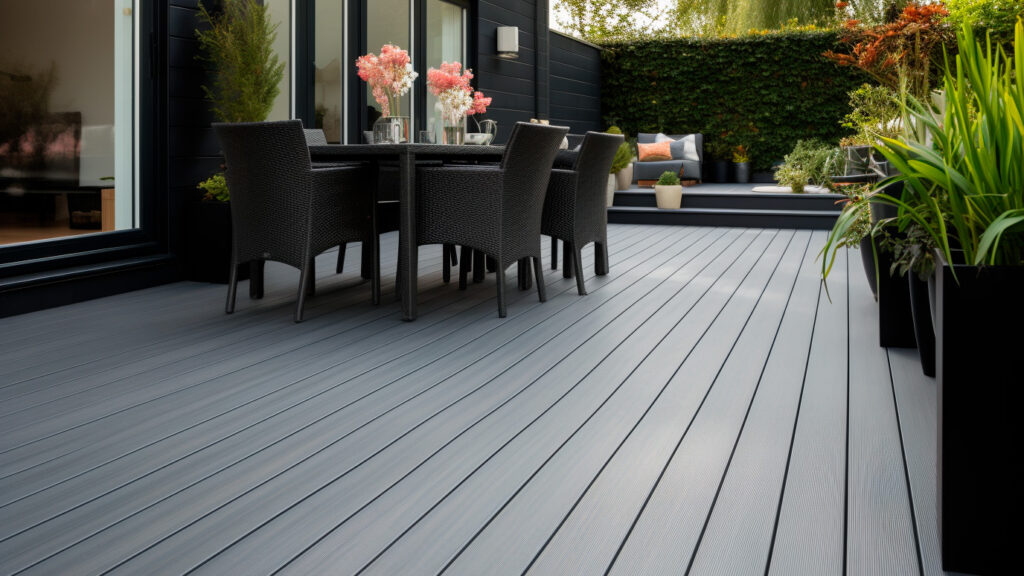
Definition & Brief Description
Composite decking combines plastic, including recycled plastic and wood. As a result, it is not 100% natural beauty hundred% recyclable. Still, a substantial part of it consists of natural material.
Price
Its price is substantially higher but for a valid reason. Composite boards need minimal expansion and almost no maintenance due to their impressive resilience and durability. Thus, with this material, you can take costs to preserve your deck’s appearance out of the equation.
Lifespan
This alternative to traditional wood decking is known for its longevity. Uncapped composite will serve you at least five extra years, compared to a timber deck. Sunlight, pests, rot, and even moisture can’t damage capped composite. So, you can expect its lifespan to be 25–30 years.
Advantages & Shortcomings
| Perks | Inconveniences |
| Durability and longevity | Higher price |
| You can style it similarly to timber texture. | It is partly recyclable, but in some cases, it can look artificial. |
| This deck calls for almost no maintenance. | To avoid issues like bowing or sagging, you have to make sure that you have the instruments and expertise to install them correctly. |
Alternatives to Wooden Decking: PVC Decking
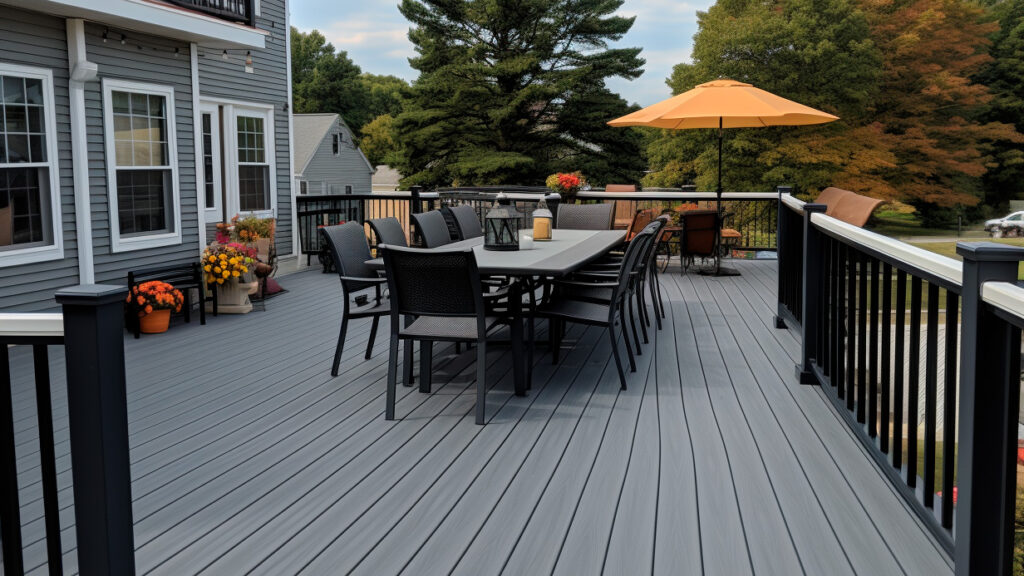
Composite and PVC decking offer numerous advantages for homeowners in Boston. Composite materials are made from many recycled components, including reclaimed wood and plastic film, making them an environmentally friendly choice. Being entirely synthetic, PVC decking provides excellent resistance to moisture, mold, and insects.
Both types of decking require minimal maintenance, are resistant to fading, and come in a wide range of colors suitable for modern and traditional designs. Although their initial cost is higher than wooden decks, the long-term savings on maintenance make them an ideal choice for Boston’s climate, with its humid summers and harsh winters.
Definition & Brief Description
It is an example of a 100% plastic decking alternative to wooden decking. Usually, it consists of polymers (polypropylene and polyvinyl chloride). Therefore, this variant is perfect for commercial projects and those who wish to trade a natural feel for simple installation and minimal maintenance.
Price
PVC decking prices can fluctuate significantly, depending on the quality of the material. Some options cost as much as a premium hardwood. Yet, you can also select one of many budget-friendly variants.
Lifespan
PVC decking can survive almost anything. Therefore, it reduces your chances of encountering rot, mold, bugs, or other form of decay in your outdoor spaces for the foreseeable future. Moreover, capped PVC boards can last up to 50 years.
Advantages & Shortcomings
| Perks | Inconveniences |
| Unprecedented longevity | It is not environmentally friendly. |
| Maintenance-free and easy-to-install technology | Its lifespan largely depends on the plastic’s quality. Thus, the financial benefits can be not as substantial as you expect. |
| Noise-free & barefoot-friendly |
Aluminum Decking
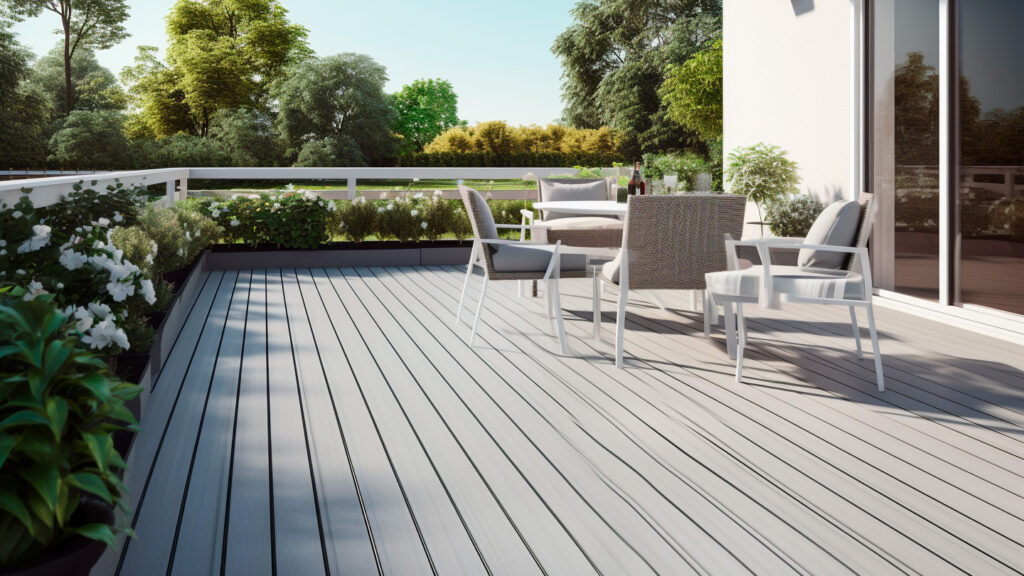
Aluminum decking offers unique benefits for Boston homeowners, including exceptional strength, lightweight properties, and durability. This material is resistant to corrosion, rot, and insect damage, making it an excellent choice for New England’s unpredictable climate. Stone decking, using support systems like SilcaGrate®, allows for creating elegant and long-lasting surfaces with travertine, porcelain, or flagstone.
Both options feature:
- Minimal maintenance requirements
- Eco-friendliness (aluminum is often made from recycled materials)
- Resistance to extreme weather conditions
- A distinctive aesthetic that stands out from traditional wood decking
However, it’s important to note that these materials typically have higher upfront costs and may require specialized installation, particularly stone decking, due to its weight.
Definition & Brief Description
If you want something eco-friendly, durable, and maintenance-free, aluminum decking should be a viable alternative to wood. These boards consist of recycled aluminum that can be finished or colored. However, the final product doesn’t do a decent job of imitating lumber texture.
Price
Of course, metal is not a low-price option. Yet, it’s not an expensive one either. Still, you risk facing challenges finding a place that offers this decking material.
Lifespan
Generally, you can count on 40 years of service. Even if you completely abandon your aluminum deck during this time, you won’t see any termites, mold, rust, or rot.
Advantages & Shortcomings
| Perks | Inconveniences |
| Maintenance-free | It is a rare guest on the market. |
| This material is lightweight, resilient, and resistant to damaging factors. | Usually, it has a protective coating against water. Still, it can be very noisy during rain (plus, it is noisy in other circumstances too). |
| Eco-friendly | Other alternatives can be more affordable. |
Vinyl Decking
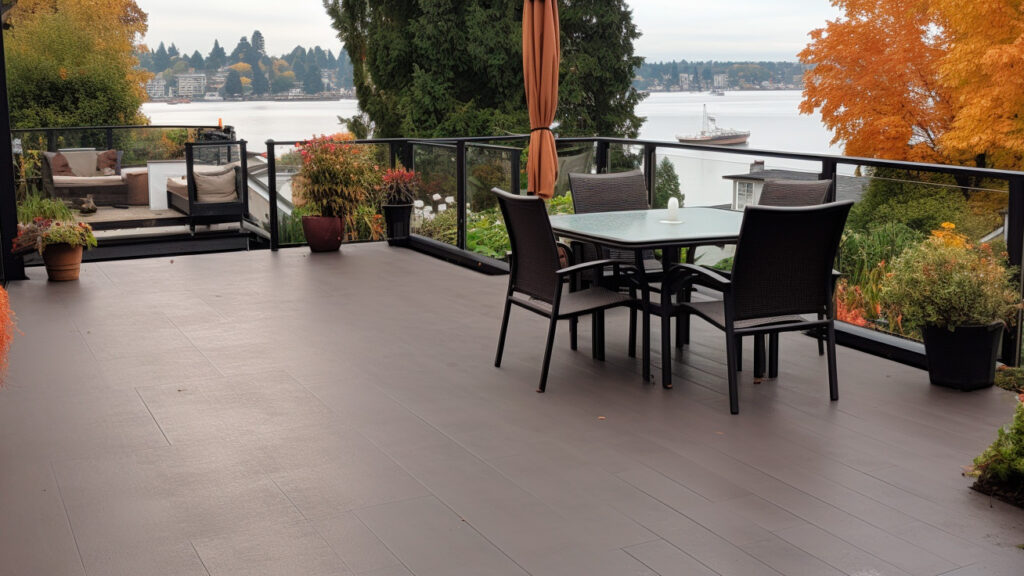
Definition & Brief Description
Vinyl decking means you will have a waterproof membrane over your boards. Furthermore, some coatings can absorb impact, resist stains, scratches, and sunlight, or remain barefoot-friendly.
Price
Vinyl is in the middle of the price range compared with other alternative options. However, additional coating upgrades can be expensive.
Lifespan
If you choose your contractor with the gravity the matter deserves, your deck will serve you for up to 30 years.
Advantages & Shortcomings
| Perks | Inconveniences |
| Longevity, resistance to multiple deteriorating factors | Extra coatings can be costly. |
Concrete Decking
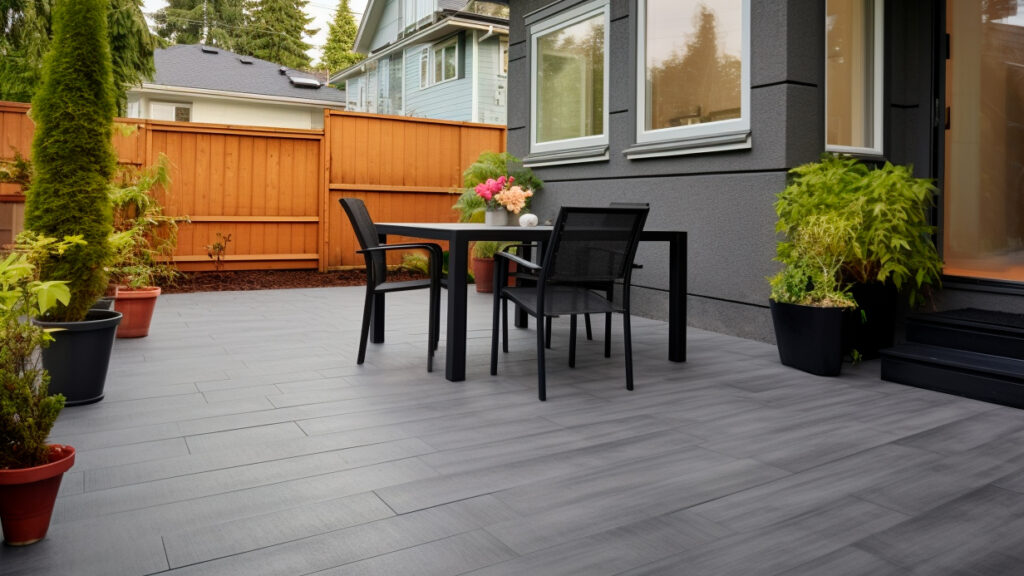
Definition & Brief Description
This method implies that you put a print on poured concrete to create a deck design that will be durable and aesthetically pleasing. Hence, you can select the pattern of any wood that suits your taste outdoor decor well.
Of course, walking on a concrete surface is comfortable, but not to the same extent as on a wooden one. Yet, this material is invincible to many enemies of timber, such as water, insects, mold, rot, or UV rays. Issues like splinters, stains, cracks, and creaks won’t bother you either.
Price
You might not witness huge profits immediately after replacing timber decking with concrete. Yet, from a distant perspective, you will benefit significantly from keeping your maintenance costs to a minimum.
Lifespan
It will last 25–50 years, depending on the climate and weather in your area.
Advantages & Shortcomings
| Perks | Inconveniences |
| Durable and easy to install (you can add extra elements, such as fire pits or stairs, without breaking a sweat) | This deck is impossible to reshape or remodel after you complete the installation. |
| This deck needs almost zero maintenance. | Climate with harsh winters can significantly shorten your deck’s lifespan. |
| You can imprint the pattern of any wood on a concrete surface. |
Decking Surfaces from Tiles
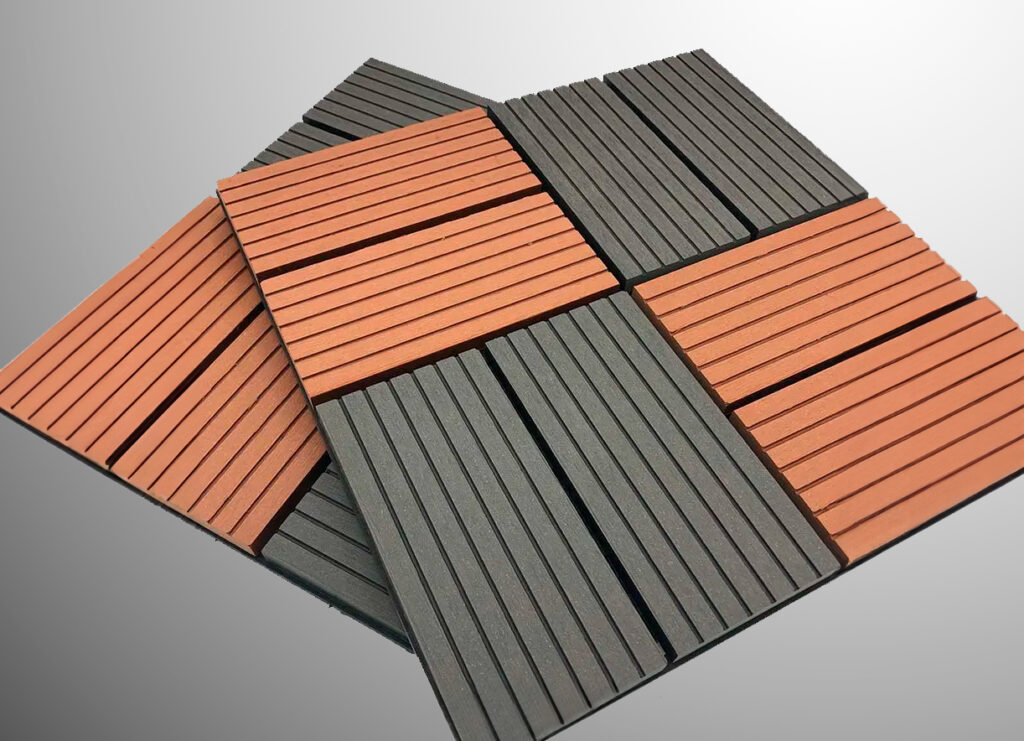
Interlocking Deck Tiles
Definition & Brief Description
This is not an alternative decking material. It is more of an alternative installation method. You can use any of best decking material you like, including vinyl, rubber paver tiles (they consist of high-density rubber), PVC, composite, or even a wood deck.
Price
Generally, they cost more than traditional board materials. Yet, they compensate for it with interchangeable puzzle pieces and a simple installation process.
Alternative Patio Formats
If you want a patio and outdoor project that doesn’t require regular maintenance or a complex installation process and also incorporates natural materials, there are decking alternative formats that deserve your attention:
- Pallet decking. All its parts are from lumber, but, as a unit, it’s more affordable and easy to deal with.
- Gravel. But you need to install a gravel grid system to compact the particles. Otherwise, you won’t be able to walk or place furniture on this surface.
- Concrete or natural stone paving. It is an easy-to-build, relatively low-price, long-lasting, and organic solution for your patio project.
Choosing Alternative Decking Materials in Boston, Massachusetts
With fluctuating timber prices and occasional intense amounts of rain or snow, Boston calls for a deck out of more resilient material, such as pressure treated wood. Concrete, vinyl, PVC, aluminum, and even capped composite decking boards will suit this requirement. In other aspects, you should choose the variant that matches your aesthetic and other preferences.
To ensure the best, natural product choice and proper installation, it’s advisable to consult with professionals with expertise in selecting and installing various decking materials, especially in Boston’s unique climate. expertise in selecting and installing various decking materials, especially in Boston’s unique climate.
Conclusion
Some available plastic decking alternatives are more affordable, while others will substantially increase your budget. Many of them have lower maintenance requirements. For other ones, you will need advanced skills and special tools. Overall, the contemporary market provides access to various alternatives to wooden decking, and you shall find the one that fits your dream project.
Denis is the driving force behind ID Flat Roof, a leading company in Boston specializing in flat roof repair and installation for over 20 years.
Expertise:
Denis excels in PVC, TPO, EPDM, and rubber roofing. His meticulous approach ensures quality and customer satisfaction.
Innovation:
Denis incorporates cutting-edge solutions like skylights and solar PV roofing.



